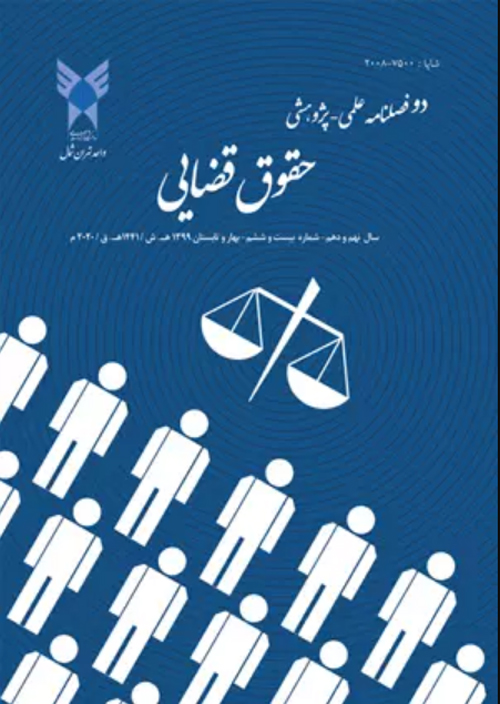Critique of the criminalization of pretending to be a forbidden act in Iranian criminal law
This study was conducted with the aim of recognizing the nature of pretending to commit a forbidden act and evaluating its position in the jurisprudential-legal dimensions and in terms of the method of data collection as documents and in terms of the method of data analysis by descriptive-analytical method. In Article 638 of the Islamic Penal Code (approved in 1996), pretending to commit a forbidden act is considered a crime. The ambiguity of the mentioned title, due to the lack of expression of its examples in the criminal regulations and the inadequacy of the legislator in determining the punishment for the forbidden act in this article, has faced many problems in its implementation. In the present study, by referring to the sources of Islamic law, the principles of the constitution, the principles of criminal law and judicial procedure and doctrine, the method of legislating criminalization in the mentioned article and the need for the legislator to pay attention to Sharia and constitutional principles and rules of criminal law And we came to the conclusion that if the legislative will is based on criminality to commit haram acts, it must define and specify its instances precisely in the penal regulations. Before amending this article, criminal judges are presumed to observe the principle of legality of crime and punishment and the principle of interpretation of criminal law in favor of the accused, citing Article 37 of the Penal Code, in cases of lack of text, ambiguity and conciseness, in a more balanced way. And act closer to the goals and purposes of the Shari'a and in many cases issue a verdict of innocence to the accused.
-
The Fiqhi Foundations of Women's Reproductive Health Rights with Reference to the Law on Family Protection and Population Rejuvenation
Maryam Aghaie Bajestani *, Simin Rajabi
Journal of comparative jurisprudence and law research, -
Reflections on Green Criminology: Hadges and Endowments
Ali Rashidi, Maryam Aghaei Bejestani *, Mohammad Rohani Moghaddam
Journal of Studies in Islamic Law & Jurisprudence, -
Feasibility of the Conformity between Soft Subversion with the Crime of Doing Corruption in the Earth
Mohamadsadegh Iran Aghideh, alireza saberiyan, Sayyed Ali Gabbar Golbaghi Masouleh
Journal of Islamic government, -
Feasibility study of criminalization of soft annihilation of the Islamic government with the viewpoint of rebellion concept
MohammadSadeq IranAghideh, , Sayyad Ali Jabbar GHolbaghi Masoleh
Islamic Law & Jurisprudence Researches Journal,




